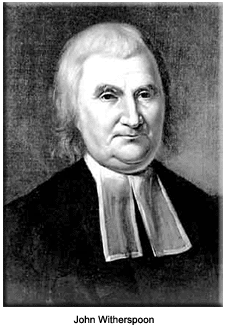 Introduction
Evangelism has played an integral part in spreading the “Good News” throughout the History of Religion in America. From colonial times to the present, evangelists have used such methods as the printing press to the Internet. Rooted in Fundamentalism, the Evangelical movement split off from its roots in the late 1800s, owing to differences in opinion about interpreting the Bible and other factors.
Spread of Evangelism
Spreading the Good News during colonial times was accomplished through books borne across the Atlantic on ships carrying colonists, or printed by Puritans on a press they brought to Boston in 1638. During The Great Awakening of the 1740s, white Protestant evangelists proselytized to black Americans. The Methodists were most successful, owing to their belief in a “near” rather than “distant” god, self help, liberation from sin through conversion, and their lively preaching and singing worship methods during evangelical revivals.
Led by John Wesley’s denunciations of the evils of slavery, blacks joined the ranks of Methodists throughout the middle and northern colonies. Evangelical revivals empowered the lower classes, including slaves, to publicly pray and preach. By the 1770s, black preachers were ordained and many led their own Baptist or Methodist congregations. During the War of Independence, large groups of blacks joined congregations in Philadelphia, Baltimore, New York City, and Charleston, South Carolina. Tensions began to develop as disagreements mounted between whites and blacks over the issue of slavery.
In November 1787, white elders attempted to relegate black parishioners to a newly built gallery in St. George’s Methodist Church of Philadelphia. Charismatic lay minister Richard Allen, the Reverend John Witherspoon, the only minister to sign the Declaration of Independence; and several others, refused to comply. Thus, they began to pray at the altar railings, to the consternation of white trustees.
Introduction
Evangelism has played an integral part in spreading the “Good News” throughout the History of Religion in America. From colonial times to the present, evangelists have used such methods as the printing press to the Internet. Rooted in Fundamentalism, the Evangelical movement split off from its roots in the late 1800s, owing to differences in opinion about interpreting the Bible and other factors.
Spread of Evangelism
Spreading the Good News during colonial times was accomplished through books borne across the Atlantic on ships carrying colonists, or printed by Puritans on a press they brought to Boston in 1638. During The Great Awakening of the 1740s, white Protestant evangelists proselytized to black Americans. The Methodists were most successful, owing to their belief in a “near” rather than “distant” god, self help, liberation from sin through conversion, and their lively preaching and singing worship methods during evangelical revivals.
Led by John Wesley’s denunciations of the evils of slavery, blacks joined the ranks of Methodists throughout the middle and northern colonies. Evangelical revivals empowered the lower classes, including slaves, to publicly pray and preach. By the 1770s, black preachers were ordained and many led their own Baptist or Methodist congregations. During the War of Independence, large groups of blacks joined congregations in Philadelphia, Baltimore, New York City, and Charleston, South Carolina. Tensions began to develop as disagreements mounted between whites and blacks over the issue of slavery.
In November 1787, white elders attempted to relegate black parishioners to a newly built gallery in St. George’s Methodist Church of Philadelphia. Charismatic lay minister Richard Allen, the Reverend John Witherspoon, the only minister to sign the Declaration of Independence; and several others, refused to comply. Thus, they began to pray at the altar railings, to the consternation of white trustees.
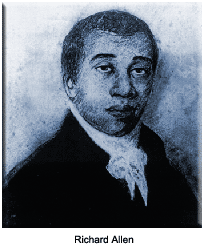 As a result, Allen and others established Bethel church, which became the mother church of the African Methodist Episcopal Church (A.M.E.) in 1816, the first independent, black-supervised Protestant denomination. Membership in the denomination grew in the mid-Atlantic and Midwest regions.
Following the Civil War, A.M.E.'s numbers increased throughout the South. Since the church acted as a forum for addressing the social, political and religious needs of blacks, many leading black activists in the abolition movement were ministers. The first National Negro Convention was organized in 1830. The gathering met at Bethel A.M.E. Church in Philadelphia, with Richard Allen presiding.
Although black church membership was predominately female, only black males could be members of the clergy, since women were barred from ordination until the 20th century. Even so, women led home prayer meetings and served on auxiliary, missionary, and Sunday school boards. They were permitted to become traveling evangelists by the A.M.E. church, but women could not head congregations.
Following Reconstruction, some blacks joined the ranks of those seeking election to Congress and other political institutions. When violence and disenfranchisement drove them out of political offices, blacks cultivated their leadership abilities in the churches. Those strong leaders laid the foundation for the political and social contributions later made by such leaders as Martin Luther King Jr. and Jesse Jackson.
As a result, Allen and others established Bethel church, which became the mother church of the African Methodist Episcopal Church (A.M.E.) in 1816, the first independent, black-supervised Protestant denomination. Membership in the denomination grew in the mid-Atlantic and Midwest regions.
Following the Civil War, A.M.E.'s numbers increased throughout the South. Since the church acted as a forum for addressing the social, political and religious needs of blacks, many leading black activists in the abolition movement were ministers. The first National Negro Convention was organized in 1830. The gathering met at Bethel A.M.E. Church in Philadelphia, with Richard Allen presiding.
Although black church membership was predominately female, only black males could be members of the clergy, since women were barred from ordination until the 20th century. Even so, women led home prayer meetings and served on auxiliary, missionary, and Sunday school boards. They were permitted to become traveling evangelists by the A.M.E. church, but women could not head congregations.
Following Reconstruction, some blacks joined the ranks of those seeking election to Congress and other political institutions. When violence and disenfranchisement drove them out of political offices, blacks cultivated their leadership abilities in the churches. Those strong leaders laid the foundation for the political and social contributions later made by such leaders as Martin Luther King Jr. and Jesse Jackson.
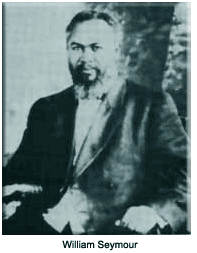 By the end of the 19th century, black church membership stood at 2.7 out of 8.3 million evangelical Americans, with Baptists constituting the majority of its population. Other denominations, such as the Holiness and Pentecostal churches, sprang up with the emphasis on doctrines of sanctification and speaking in tongues. In 1906, at the Azusa Street Revival in Los Angeles, black preacher William J. Seymour sparked the Pentecostal movement that swept the country.
During the 1960s and 1970s, in the midst of social and political unrest, such black militants as Malcolm X were attracted by the Nation of Islam organization's separatist ideals. In response, black Christian clergy formulated a new central message as one of liberation from oppression.
Holiness movement
During the Holiness movement of the mid-19th century, Methodists held Holiness camp meetings in the frontier states. Methodist Evangelist Phoebe Smith, one of the founders of the Holiness Movement, wrote the doctrine of Christian perfection. Also during that time, Asbury College was established in 1890, along with numerous other similar colleges and universities.
Evangelism in the 20th century
Evangelism turned to elaborate crusades in the 20th century. Such preachers as Billy Sunday attempted to convince nonbelievers that they should jump ship from their ancestral Christian denominations, and that religion was to be set apart from secular daily life. Tent revivals occurred in which dynamic, charismatic preachers captured the attention of thousands of peoples concerned about the afterlife, and staged "altar calls" to baptize many of them.
With the advent of radio, evangelists took to the airwaves to preach their message. The first radio church messages were broadcast from Calvary Episcopal Church on January 2, 1921, in Pittsburgh, Pennsylvania. Such revivalist preachers as Billy Sunday, Dwight L. Moody, and Aimee Semple McPherson capitalized on the power of radio. By 1927, there were an estimated 60 religious groups operating their own radio stations.
By the end of the 19th century, black church membership stood at 2.7 out of 8.3 million evangelical Americans, with Baptists constituting the majority of its population. Other denominations, such as the Holiness and Pentecostal churches, sprang up with the emphasis on doctrines of sanctification and speaking in tongues. In 1906, at the Azusa Street Revival in Los Angeles, black preacher William J. Seymour sparked the Pentecostal movement that swept the country.
During the 1960s and 1970s, in the midst of social and political unrest, such black militants as Malcolm X were attracted by the Nation of Islam organization's separatist ideals. In response, black Christian clergy formulated a new central message as one of liberation from oppression.
Holiness movement
During the Holiness movement of the mid-19th century, Methodists held Holiness camp meetings in the frontier states. Methodist Evangelist Phoebe Smith, one of the founders of the Holiness Movement, wrote the doctrine of Christian perfection. Also during that time, Asbury College was established in 1890, along with numerous other similar colleges and universities.
Evangelism in the 20th century
Evangelism turned to elaborate crusades in the 20th century. Such preachers as Billy Sunday attempted to convince nonbelievers that they should jump ship from their ancestral Christian denominations, and that religion was to be set apart from secular daily life. Tent revivals occurred in which dynamic, charismatic preachers captured the attention of thousands of peoples concerned about the afterlife, and staged "altar calls" to baptize many of them.
With the advent of radio, evangelists took to the airwaves to preach their message. The first radio church messages were broadcast from Calvary Episcopal Church on January 2, 1921, in Pittsburgh, Pennsylvania. Such revivalist preachers as Billy Sunday, Dwight L. Moody, and Aimee Semple McPherson capitalized on the power of radio. By 1927, there were an estimated 60 religious groups operating their own radio stations.
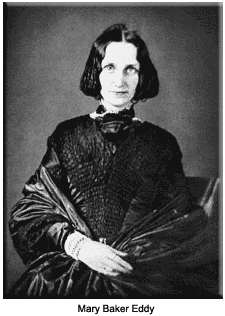 In addition to radio during the 1940s and television in the '50s, Norman Vincent Peale and Billy Graham conveyed their message via the printed word on the largest scale in printing history. Early “self-help” books incorporated a Christian message and served as guides for living and thinking about life’s problems. Christian newspapers and magazines gained in circulation. Evangelical messages of salvation were found on the pages of the Christian Times and Mary Baker Eddy’s Christian Science Monitor. Even Christian romance novels hit the shelves when the “Christianization” of popular media began in the 1970s.
Few managed to make the leap from radio to television proselytizing, owing to its expense and demands. Nevertheless, beginning in the 1950s, Evangelism added to its Bible-based message a personality-based culture in what was called the “electronic church.” Billy Graham, a dynamic and charismatic public speaker, was the most accomplished at making the transition. His first nationally telecast crusade generated 1.5 million letters to the TV station. After the new form began to reach potential converts all over the world, other evangelists joined the ranks in the highly successful and profitable medium.
The new “televangelists” — Rex Humbard, Jerry Falwell,Oral Roberts, and others — captured millions of viewers and dollars as they established personality cults. People sent checks from their armchairs to fund everything from far-flung missionary facilities to amusement parks, before the roof caved in on the likes of Jim Bakker, Jimmy Swaggart, Pat Robertson, and Oral Roberts. In varying degrees, their credibility was compromised when personal and financial scandals were exposed, beginning in 1988.
In addition to radio during the 1940s and television in the '50s, Norman Vincent Peale and Billy Graham conveyed their message via the printed word on the largest scale in printing history. Early “self-help” books incorporated a Christian message and served as guides for living and thinking about life’s problems. Christian newspapers and magazines gained in circulation. Evangelical messages of salvation were found on the pages of the Christian Times and Mary Baker Eddy’s Christian Science Monitor. Even Christian romance novels hit the shelves when the “Christianization” of popular media began in the 1970s.
Few managed to make the leap from radio to television proselytizing, owing to its expense and demands. Nevertheless, beginning in the 1950s, Evangelism added to its Bible-based message a personality-based culture in what was called the “electronic church.” Billy Graham, a dynamic and charismatic public speaker, was the most accomplished at making the transition. His first nationally telecast crusade generated 1.5 million letters to the TV station. After the new form began to reach potential converts all over the world, other evangelists joined the ranks in the highly successful and profitable medium.
The new “televangelists” — Rex Humbard, Jerry Falwell,Oral Roberts, and others — captured millions of viewers and dollars as they established personality cults. People sent checks from their armchairs to fund everything from far-flung missionary facilities to amusement parks, before the roof caved in on the likes of Jim Bakker, Jimmy Swaggart, Pat Robertson, and Oral Roberts. In varying degrees, their credibility was compromised when personal and financial scandals were exposed, beginning in 1988.
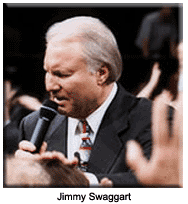 As distrust of televangelists grew, a period of self-correction began, aided by the National Religious Broadcasters. They established an Ethics and Financial Integrity Commission that set standards for its members. A gradual shift occurred, from personality-driven evangelism toward the development of Christian entertainment programming with such television shows as Christie, Seventh Heaven, and Touched by an Angel that filled the national broadcast network rosters. Meanwhile, televangelists moved over to satellite and cable networks.
Israel, family values, and the Christian Right
By 1979, the young country of Israel played a key role in the Biblical prophecy of the End Days, a central concern of Bible-based conservatives. Support of the Jewish state became important in the fulfillment of the Evagelicals' and Fundamentalists' vision of Armageddon, the scriptural venue where an apocalyptic battle will be waged between good and evil. That backing of Israel has run in tandem with the traditional support given by political conservatives.
Since the 1980s, the Republican Party has espoused "family values" as a way to capture conservative votes. The term became widespread following Vice-President Dan Quayle's speech in 1992, when he stated that it was the breakdown of family values that caused the Los Angeles race riots. The term played a significant role in the re-election of President George W. Bush, who won the support of most Evangelicals in 2004.
As distrust of televangelists grew, a period of self-correction began, aided by the National Religious Broadcasters. They established an Ethics and Financial Integrity Commission that set standards for its members. A gradual shift occurred, from personality-driven evangelism toward the development of Christian entertainment programming with such television shows as Christie, Seventh Heaven, and Touched by an Angel that filled the national broadcast network rosters. Meanwhile, televangelists moved over to satellite and cable networks.
Israel, family values, and the Christian Right
By 1979, the young country of Israel played a key role in the Biblical prophecy of the End Days, a central concern of Bible-based conservatives. Support of the Jewish state became important in the fulfillment of the Evagelicals' and Fundamentalists' vision of Armageddon, the scriptural venue where an apocalyptic battle will be waged between good and evil. That backing of Israel has run in tandem with the traditional support given by political conservatives.
Since the 1980s, the Republican Party has espoused "family values" as a way to capture conservative votes. The term became widespread following Vice-President Dan Quayle's speech in 1992, when he stated that it was the breakdown of family values that caused the Los Angeles race riots. The term played a significant role in the re-election of President George W. Bush, who won the support of most Evangelicals in 2004.
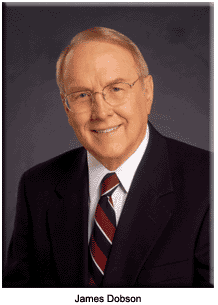 Typically, family values are described as virtues that promote the nuclear family with traditional roles for men and women. The Christian Right takes issue with same-sex marriages, abortion, contraception, and single-parent households. Such organizations as the Christian Coalition, Dr. James Dobson's Focus on the Family (FOTF), American Decency Association, Parents Television Council, and the United States Conference of Catholic Bishops' Office for Film and Broadcasting, espouse family values. Efforts are being made to severely restrict or eliminate television programming that does not support those values. Dobson's FOTF radio broadcasts, websites, and child-rearing methods in Dare to Discipline books have done much to popularize family values.
Evangelism goes high tech
Evangelistic websites slowly cropped up on the Internet in the early 1990s. The first provided informational websites for real-world evangelists, but were later seen as missionary fields not previously harvested. Thanks to the anonymous nature of that interactive communication tool, people feel more comfortable about sharing their personal beliefs and faith with a large audience, or with one unknown person.
Recently, sophisticated websites have offered multi-media presentations that incorporate sound, written words, movie, and video technologies. Those sites also offer online courses and mentoring.
Conclusion
Although the methods and players have changed, the Evangelical movement has remained constant in the flow of America’s religious history. Spreading the Good News will be guaranteed as long as the Constitution’s First Amendment continues to be upheld by the U.S. Supreme Court. As stated, “Congress shall make no law respecting an establishment of religion, or prohibiting the free exercise thereof... .” With the most recent form of proselytizing on the worldwide web, the effects of that First Amendment guarantee will continue to be felt by those living in the United States as well as around the world.
Typically, family values are described as virtues that promote the nuclear family with traditional roles for men and women. The Christian Right takes issue with same-sex marriages, abortion, contraception, and single-parent households. Such organizations as the Christian Coalition, Dr. James Dobson's Focus on the Family (FOTF), American Decency Association, Parents Television Council, and the United States Conference of Catholic Bishops' Office for Film and Broadcasting, espouse family values. Efforts are being made to severely restrict or eliminate television programming that does not support those values. Dobson's FOTF radio broadcasts, websites, and child-rearing methods in Dare to Discipline books have done much to popularize family values.
Evangelism goes high tech
Evangelistic websites slowly cropped up on the Internet in the early 1990s. The first provided informational websites for real-world evangelists, but were later seen as missionary fields not previously harvested. Thanks to the anonymous nature of that interactive communication tool, people feel more comfortable about sharing their personal beliefs and faith with a large audience, or with one unknown person.
Recently, sophisticated websites have offered multi-media presentations that incorporate sound, written words, movie, and video technologies. Those sites also offer online courses and mentoring.
Conclusion
Although the methods and players have changed, the Evangelical movement has remained constant in the flow of America’s religious history. Spreading the Good News will be guaranteed as long as the Constitution’s First Amendment continues to be upheld by the U.S. Supreme Court. As stated, “Congress shall make no law respecting an establishment of religion, or prohibiting the free exercise thereof... .” With the most recent form of proselytizing on the worldwide web, the effects of that First Amendment guarantee will continue to be felt by those living in the United States as well as around the world.